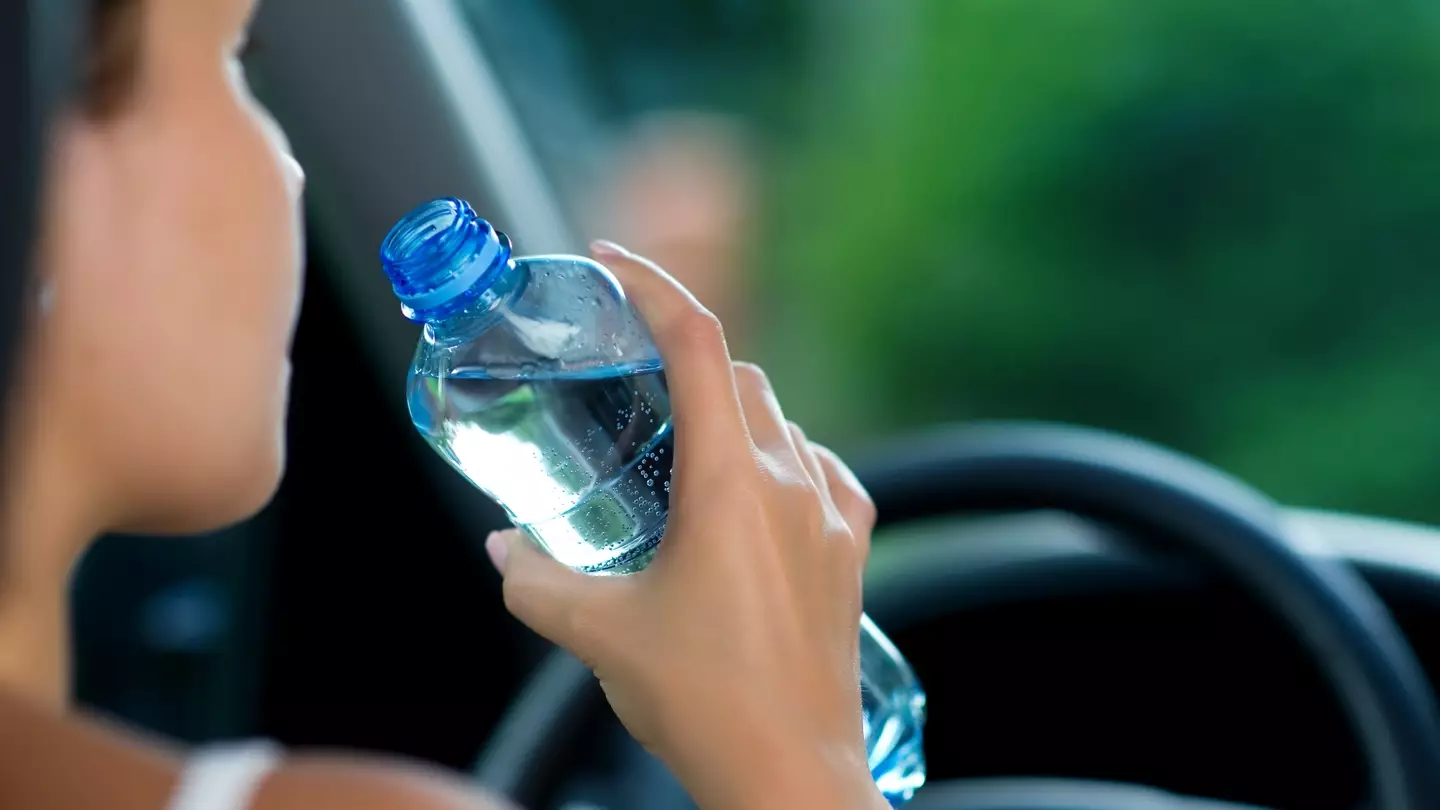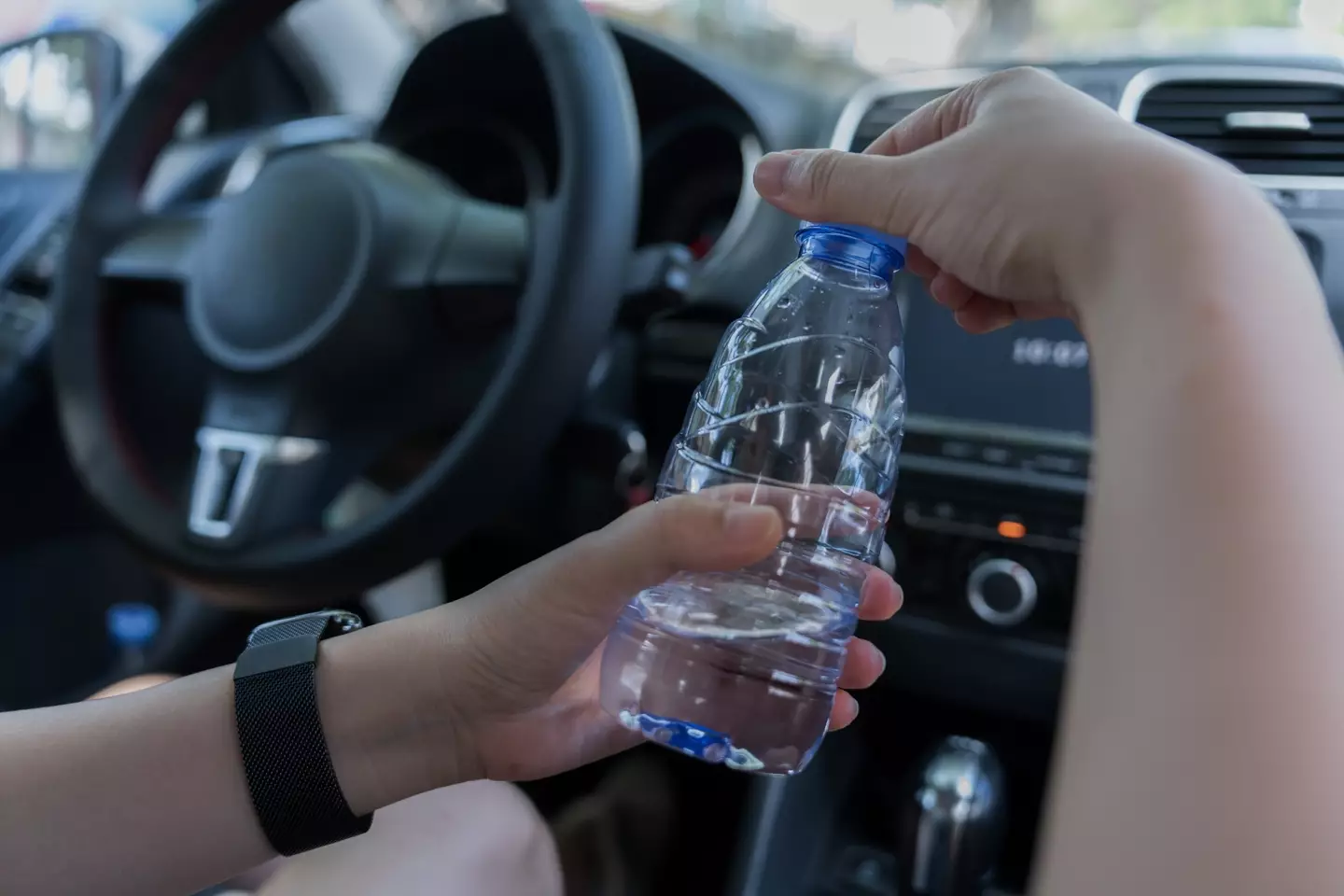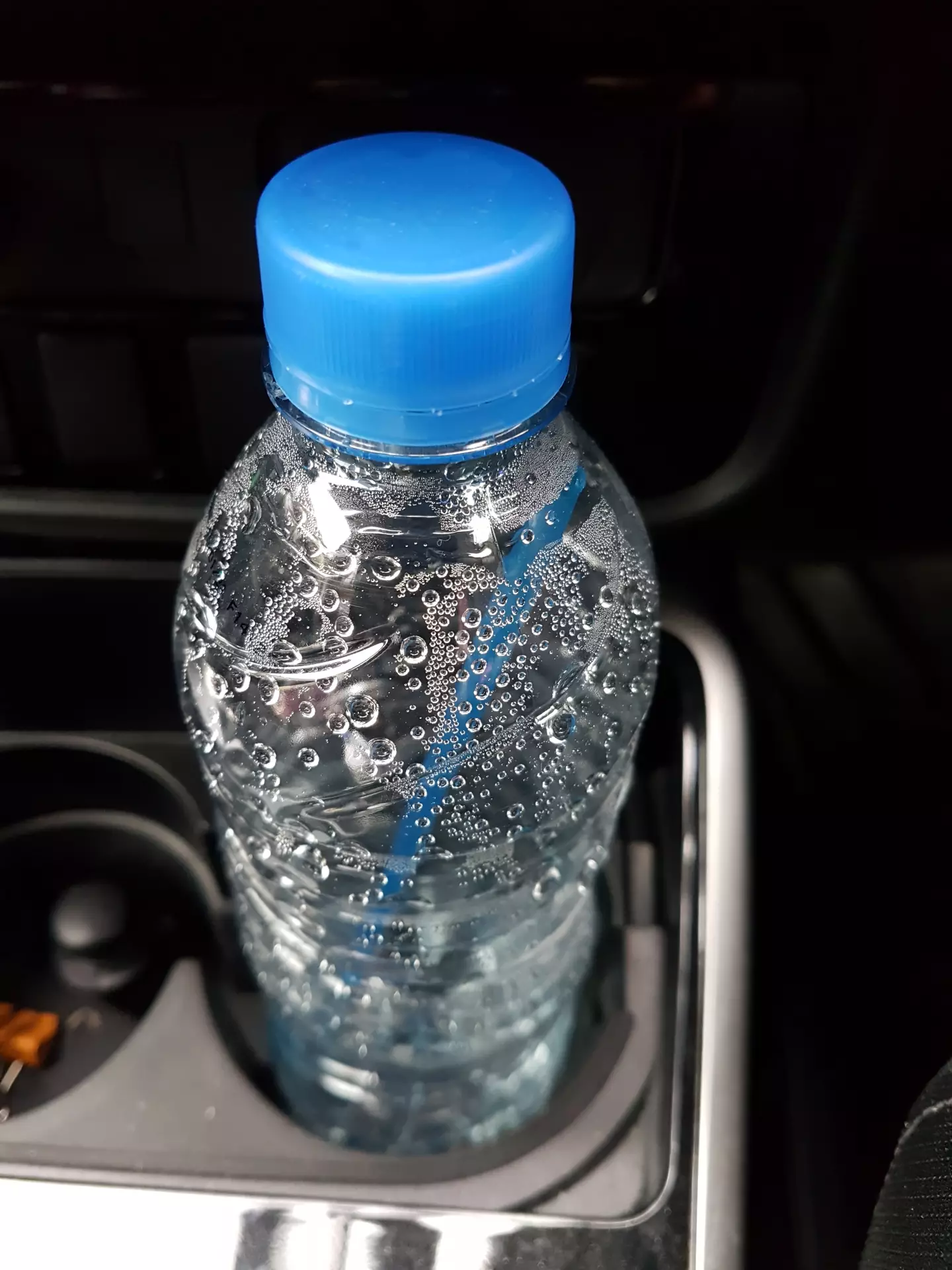
There's nothing worse that being stuck in traffic on the way home from work, and realising you're without a drink to quench your thirst.
Oh, but thankfully, you find a water bottle under one of your seats!
You're not quite sure how long it's been there, but it can't have been too long, right? Plus, it's only water - so, what's the harm in a few sips?
Well, apparently, the risk of chugging water that has sat in bottles for an unknown period of time is actually pretty high.
Advert
In fact, some doctors have linked the decision to do so with diagnoses of some pretty serious health conditions, including the likes of cancer, developmental issues in kids, digestive issues and fertility faults. But why?
According to research into the dangers of plastics, single-use bottles have the capacity to slowly poison a person's body when paired with water.

As cited by The Mail, as much as 80 per cent of bottled water on shop shelves today has been found to contain microplastics, as well as a horde of other undisclosed substances, many of which are linked to the dangerous disorders we've mentioned.
Advert
Making matters worse, the havoc these toxic chemicals can wreak has the potential to be further exacerbated by heat - such as, for example, being sat in a parked car for some time.
According to a study conducted by China's Nanjing University, plastic bottles made from polyethylene terephthalate (PET) that have been kept in intense heat - specifically around 158 degrees Fahrenheit - are particularly dangerous.
This is because heat exposure to this degree causes the bottles to release antimony, a heavy metal that is considered toxic, as well as bisphenol A (BPA) into the water.
This is said to be the case after as little as 20 minutes on, for example, an 80-degree Fahrenheit day, with studies finding that cars can quickly reach heights of 109F in this time, or 118F after 40 mins.
Advert

After a full hour, this temperature hit a concerning 123F.
Exposure to the former toxin has been linked to the likes of headaches, dizziness and fainting, nausea and sickness, pain in the stomach and insomnia, as well as longer-term conditions like lung inflammation and stomach ulcers.
Bisphenol-A (BPA), meanwhile, is also said to be associated with cancer developments, as well as - as we mentioned - issues surrounding fertility, autism, heart problems and early deaths.
Advert
As such, Nanjing University scientists advise very much against storing plastic water in parked cars, especially on warm days.
A similar claim had previously been made by researchers at McGill University in Montreal, Canada found that keeping plastic water bottles at high temperates can result in the release of particles from four common plastics - the most concerning being polyethylene.
Topics: Health, Life, Real Life, True Life, Food and Drink, Cancer